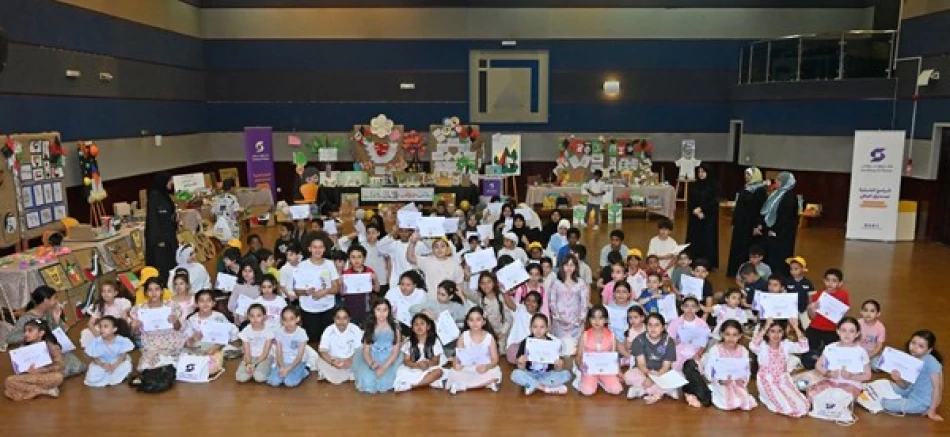
Emirati Leader Hails Summer Programs as a "National Epic" Boosting Identity and Arabic
UAE's Al Watan Fund Summer Programs Forge National Identity Through Arabic Language Revival
The UAE's ambitious summer education initiative has concluded its third consecutive season with remarkable success, engaging thousands of students across 56 locations nationwide in programs designed to strengthen Arabic language skills and national identity. The Al Watan Fund's comprehensive approach signals the Emirates' strategic commitment to cultural preservation amid rapid globalization, offering a blueprint for other Gulf nations grappling with similar challenges.
Unprecedented Scale and Participation
Sheikh Nahyan bin Mubarak Al Nahyan, Minister of Tolerance and Coexistence and Chairman of Al Watan Fund, described the program's outcomes as "dazzling," highlighting the participation of over 93 supporters, partners, and sponsors across government and private schools, cultural centers, and youth facilities.
The month-long initiative featured hundreds of activities centered on Arabic language enhancement and heritage education, while incorporating entertainment, sports, arts, and innovation discovery. Notably, 78 Emirati artists, writers, and creators participated directly, creating an immersive cultural experience that exceeded satisfaction expectations among both students and parents.
Beyond Traditional Education Models
Unlike conventional summer programs, Al Watan Fund's approach integrates artificial intelligence, traditional arts, and Emirati history into a cohesive learning framework. The program adopted "Arabic: Language of the Quran" as its central theme, positioning language learning within broader cultural and religious contexts.
Strategic Implications for Cultural Preservation
The program's success reflects deeper concerns about cultural identity in rapidly modernizing Gulf states. As the UAE continues attracting international talent and investment, maintaining Arabic language proficiency and national identity among younger generations becomes increasingly critical for social cohesion.
Yasser Al Qarqawi, Director General of Al Watan Fund, emphasized that activities specifically targeted national identity messaging through diverse mediums, suggesting a sophisticated understanding of how cultural transmission occurs in digital-native populations.
Regional Context and Comparisons
The UAE's systematic approach contrasts with more fragmented cultural preservation efforts elsewhere in the region. While Saudi Arabia's Vision 2030 includes cultural components, and Qatar has invested heavily in heritage projects, the Emirates' integration of private sector partnerships and comprehensive geographic coverage represents a distinctive model.
The program's emphasis on parental engagement and satisfaction metrics also reflects lessons learned from international education systems, particularly Finland's holistic education approach and Singapore's bilingual proficiency strategies.
Measuring Success Through Stakeholder Feedback
Parent testimonials reveal tangible outcomes beyond traditional academic metrics. Amina Al Marzouqi noted significant improvements in her children's linguistic skills, creative thinking, and self-confidence. Gala Azazi highlighted her daughter's artistic development and patriotic expression, while Salem Mohammed praised the program's integrated approach combining cognitive, skill-based, and value-oriented activities.
These qualitative indicators suggest the program successfully addresses concerns about declining Arabic proficiency and cultural disconnection among UAE youth, issues that have prompted similar initiatives across the Arab world.
Economic and Social Investment Returns
The program's comprehensive reporting system, including detailed assessments and stakeholder surveys, demonstrates sophisticated program evaluation typically associated with major corporate or government initiatives. This data-driven approach enables continuous improvement while justifying significant resource allocation.
Future Implications and Scalability
The program's third consecutive successful season establishes it as a sustainable model rather than experimental initiative. Sheikh Nahyan's emphasis on implementing stakeholder recommendations suggests institutional learning capacity that could enable program expansion or replication.
For other Gulf states facing similar demographic and cultural challenges, the UAE's comprehensive approach offers practical insights into effective cultural preservation strategies. The integration of traditional heritage with modern delivery methods, combined with extensive private sector engagement, creates a framework potentially applicable across diverse contexts.
The program's success ultimately reflects the UAE's broader strategy of managed modernization—embracing global integration while maintaining cultural foundations. As regional governments increasingly recognize cultural identity as essential for long-term stability and citizen engagement, the Al Watan Fund model may influence policy approaches throughout the Gulf and broader Arab world.
Most Viewed News

 Layla Al Mansoori
Layla Al Mansoori






